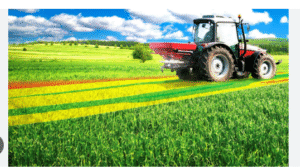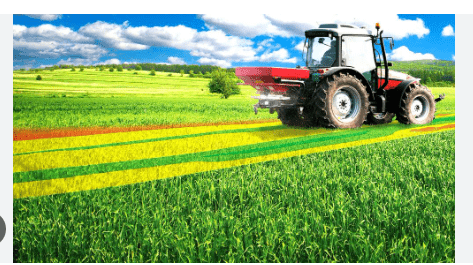Agriculture Department plays a crucial role in shaping the future of farming, food production, and life in rural areas. As one of the most essential branches of government, it’s at the heart of decisions and actions that directly impact farmers, food supply, and sustainable land use. From creating supportive policies to running farmer-friendly programs, this department works to ensure that agriculture remains strong, efficient, and secure for everyone.

What Is the Agriculture Department?
The Agriculture Department looks after everything related to farming—like crops, animals, fishery, village development, and safe food for all. . Think of it as a vital link between the government and the farming community—offering farmers the support they need through helpful programs, financial aid, research, and training.
Depending on the country, the name might vary. For example, it’s called the USDA (United States Department of Agriculture) in the U.S., while in countries like India or Bangladesh, to boost  l productivity, secure the nation’s food supply, and improve the lives of people in rural communities.
l productivity, secure the nation’s food supply, and improve the lives of people in rural communities.
Key Responsibilities of the Agriculture Department
1. Farmer Support and Subsidies
One of the most important responsibilities of the Agriculture Department is standing beside farmers—especially when times get tough. It provides essential financial support through subsidies, low-interest loans, and crop insurance. like bad weather, natural disasters, or sudden market price drops, making their livelihoods a bit more secure.
2. Research and Innovation
The department also invests in agricultural research and innovation to help farming evolve. Whether it’s developing high-quality seeds, introducing modern farming tools, managing pests, or encouraging climate-smart agriculture, these advancements give farmers better ways to grow more while using fewer resources.
3. Food Security and Safety
Feeding the nation is a top priority. The Agriculture Department works hard to ensure there’s enough safe and healthy food for everyone. It keeps an eye on crop production, food storage, and distribution, while also setting and enforcing food safety standards to protect public health from farm to table.
4. Rural Development
The department works on rural infrastructure, including irrigation systems, roads, electricity, and market access. By developing rural areas, it improves the quality of life for millions of people who depend on agriculture.
Digital Transformation in Agriculture
In today’s digital age, the Agriculture Department is evolving to keep up with the needs of modern farmers. Across many countries, departments are turning to technology to make their services faster, simpler, and more accessible—even in the most remote villages.
Now, farmers can easily access these services right from their phones, anytime and anywhere:
- Apply for government subsidies
- Check real-time weather updates to plan their farming activities
- View current market prices to sell their produce smartly
- Explore modern farming techniques and expert advice
- Submit insurance claims easily when crops are damaged
This digital shift is making a big difference—saving time, cutting hassle, and empowering farmers with the information they need to grow and succeed.
Role in Climate Change and Disaster Management
Farming is one of the first sectors to feel the effects of climate change—from unexpected floods and long droughts to shifting weather patterns that disrupt crop cycles. These challenges make life harder for farmers, but the Agriculture Department plays a key role in helping them adapt and stay resilient.
To support farmers through these tough times, the department:
- Promoting climate-resilient crops
- Trains farmers on how to prepare for and manage natural disasters
- PTracks and predicts agricultural trends, giving farmers time to plan ahead
Through these efforts, the department not only protects farmers’ livelihoods but also helps ensure a steady food supply despite changing climates.
How the Agriculture Department Helps Small Farmers
Small and marginal farmers make up the majority of agricultural workers in many countries. The  Department ensures they are not left behind by offering:
Department ensures they are not left behind by offering:
- Low-interest loans
- Training programs
- Access to government schemes
- Support for cooperative farming
Public Awareness and Farmer Education
To help farmers grow smarter and safer, the Agriculture Department regularly runs awareness campaigns and training programs across the country. These initiatives are designed to equip farmers with practical knowledge they can use in their daily work.
Through these programs, farmers learn about:
- Safe and effective use of fertilizers and pesticides to protect both crops and the environment
- Proper use of fertilizers and pesticides
- Current market trends and pricing so they can sell their crops at the right time and price
By sharing the right information at the right time, the department empowers farmers to make informed decisions and improve their overall productivity and income.
Challenges Faced by the Agriculture Department
Despite its efforts, the department also faces challenges such as:
- Budget limitations
- Bureaucratic delays
- Low awareness among farmers
- Corruption in fund distribution
- Climate-related threats
Conclusion
The Agriculture Department serves as the backbone of a nation’s food system and rural progress. It not only supports farmers on the ground but also drives innovation, safeguards food security, and promotes sustainable ways of growing and producing food.For any country aiming to build a healthy, stable, and food-secure future, investing in the Agriculture Department isn’t optional—it’s essential.
